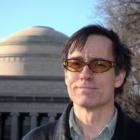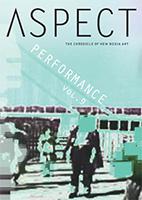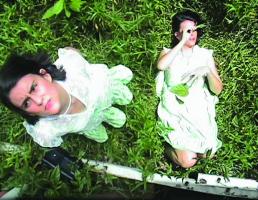Joe Gibbons

Gibbons' work in film and video is characterized by a time-honored approach - that of the artist's use of his own life as source material, a laboratory for self-observation and experimentation.
Though his work is rooted in autobiography - according to critic J. Hoberman, Gibbons "invented a new mode of psychodrama which might be termed the 'confessional'" - it ultimately subverts that genre. Blurring the boundaries between fact and fiction, self and persona, his films and tapes combine a desire to connect, to confess, with a contradictory impulse to confabulate and dissimulate.
He has been recognized with fellowships and awards from the New York Foundation for the Arts, the NY State Council on the Arts, the Creative Capital Foundation, The LEF Foundation, the National Endowment for the Arts, the Massachusetts Council on the Arts and Humanities, and the John Simon Guggenheim Foundation.
His work has been exhibited at numerous institutions including the Museum of Modern Art in NY, the Whitney Museum of American Art, the Centre Pompidou, and the Museo Nacional Centro de Arte Reina Sofia in Madrid, Spain. His work has been chosen four times for the Whitney Biennial (1993, 2000, 2002, 2006) and is regularly programmed at the NY Video Festival, the Rotterdam Film Festival, and the Black Maria Film and Video Festival. His films have been broadcast in Spain, France and Germany as well as on PBS. He has collaborated on performances, films and videos with artists Tony Oursler, Karen Finley, Tony Conrad, and Emily Breer.
His feature The Genius, starring Karen Finley and himself, had a month-long run in NYC at Anthology Film Archives and was included in such festivals as New Directors/New Films and the Rotterdam International Film Festival. His most recent film/tape, "Confessions of a Sociopath", was included in "Best Films of the 2001" lists in Film Comment and Artforum magazines. He was a 2001 Guggenheim fellowship recipient. He lives in Boston and teaches at Massachusetts Institute of Technology.



